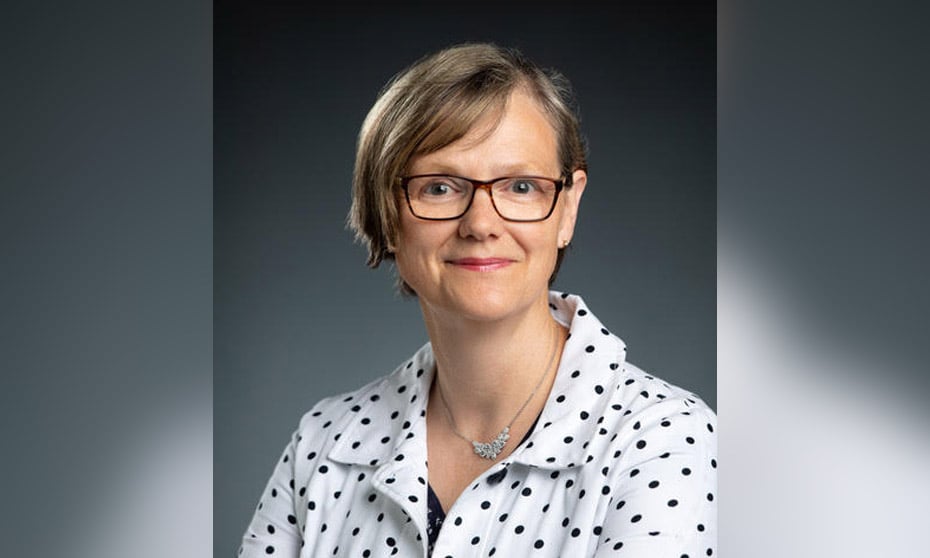
Jula Hughes to lead law school

Lakehead University’s law school has a new leader, after its previous two appointments ended in controversy.
Jula Hughes is set to start as dean of the Bora Laskin Faculty of Law on Oct. 1, the school announced on Aug. 27.
She says that the school’s mandate — Aboriginal and Indigenous law, natural resources and environmental law, and sole and small-town practice — drew her to the role.
“Increasingly the courts are recognizing that — in addition to the common law and civil law traditions — Canada has a wealth of Indigenous legal traditions that shape our law and are part of our law in an ongoing way. To be an effective lawyer in Canada in this period means learning those traditions, and learning to meaningfully apply that law and bring it to the attention of the courts,” she says.
She says problems in the European legal tradition — such as the lack of ongoing relationships — are addressed by Indigenous law structures.
“If reconciliation is a key constitutional objective, lawyers today will have to learn, and get immersed in, Indigenous law,” she says.
Previously a human rights and labour lawyer in Ottawa, Hughes has been teaching at the Faculty of Law of New Brunswick since 2006, lecturing on criminal law, constitutional law, public law, labour law, labour arbitration, human rights law, wrongful convictions and advanced criminal procedure, according to Lakehead’s announcement.
Her research — focused on violence faced by Indigenous women and girls and racial and sexual minorities on the East Coast — has taught her a lot about ways to support families in the community when someone goes missing; as well as the gaps in police service interactions, she says.
“I think in Thunder Bay, the situation is not that different: There is significant violence experienced by Indigenous people in this region and there are probably things the legal system can contribute to addressing that, in consultation and collaboration with the community,” she says. “I hope to see the law faculty here engaged in that work.”
Hughes will follow Angelique EagleWoman, who resigned last year, alleging systemic racism within the school. EagleWoman filed a statement of claim against Lakehead last year, and her lawyer said Lakehead “regularly micro-managed her in a manner that is completely inconsistent with the dean's position.”
“They regularly undermined her with respect to her faculty and staff. And further, there was a significant under-resourcing and understaffing at the faculty and the school of law that made it almost impossible for EagleWoman to manage the law school,” Paul Champ of Champ & Associates in Ottawa told Canadian Lawyer magazine.
EagleWoman’s interim replacement, Justice Patrick Smith, also ended up leaving the post.
Justice Robert Pidgeon, vice chairman of the Judicial Conduct Committee of the Canadian Judicial Council said Smith “engaged in misconduct by accepting a position as interim dean without considering the possible public controversy associated with the reaction from the chiefs of First Nations and without considering the political environment or the potential effect on the prestige of judicial office.”
Pidgeon noted last year that First Nations leaders “criticized the lack of prior consultation” in Smith’s appointment.
Hughes, however, says that while she can’t comment on events that happened before her arrival, there was “goodwill” and “engagement” from both senior administration and indigenous communities during the hiring process.
Lakehead said in a statement that the hiring process included representatives from the Bora Laskin Faculty of Law, other Lakehead University Faculties; the University’s various governing bodies, the Thunder Bay Law Association, Anishinabek Nation, Anishinawbe Omaa Minowaywin (the advisory committee at the Bora Laskin Faculty of Law), Fort William First Nation, Grand Council Treaty 3, the Métis Nation of Ontario, Nishnawbe Aski Nation, and Lakehead University’s Ogimaawin-Aboriginal Governance Council.
“They are really inspirational people, so I’m very much looking forward to working with everybody here and I have seen a very positive set of encounters so far. Extremely positive,” Hughes says.
As the lack of articling options has specific impacts on communities in the north, Hughes also says that Lakehead’s Integrated Practice Curriculum is a priority for her to “deliver on.”
“In Ontario, [there is] the very significant issue of the differential for racialized students. Those problems have been with us for a long time. There haven’t really been a lot of solutions. The practice programs that exist at Ryerson and Ottawa are ways for addressing those problems,” she says.
But getting students to join the profession sooner — as the Lakehead program does — is particularly important in Thunder Bay, says Hughes.
“I think particularly in the north, which is underserviced in terms of legal services, that can play a real role in making the profession accessible,” Hughes says.